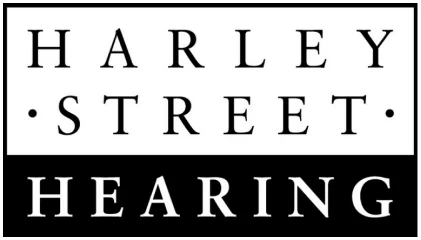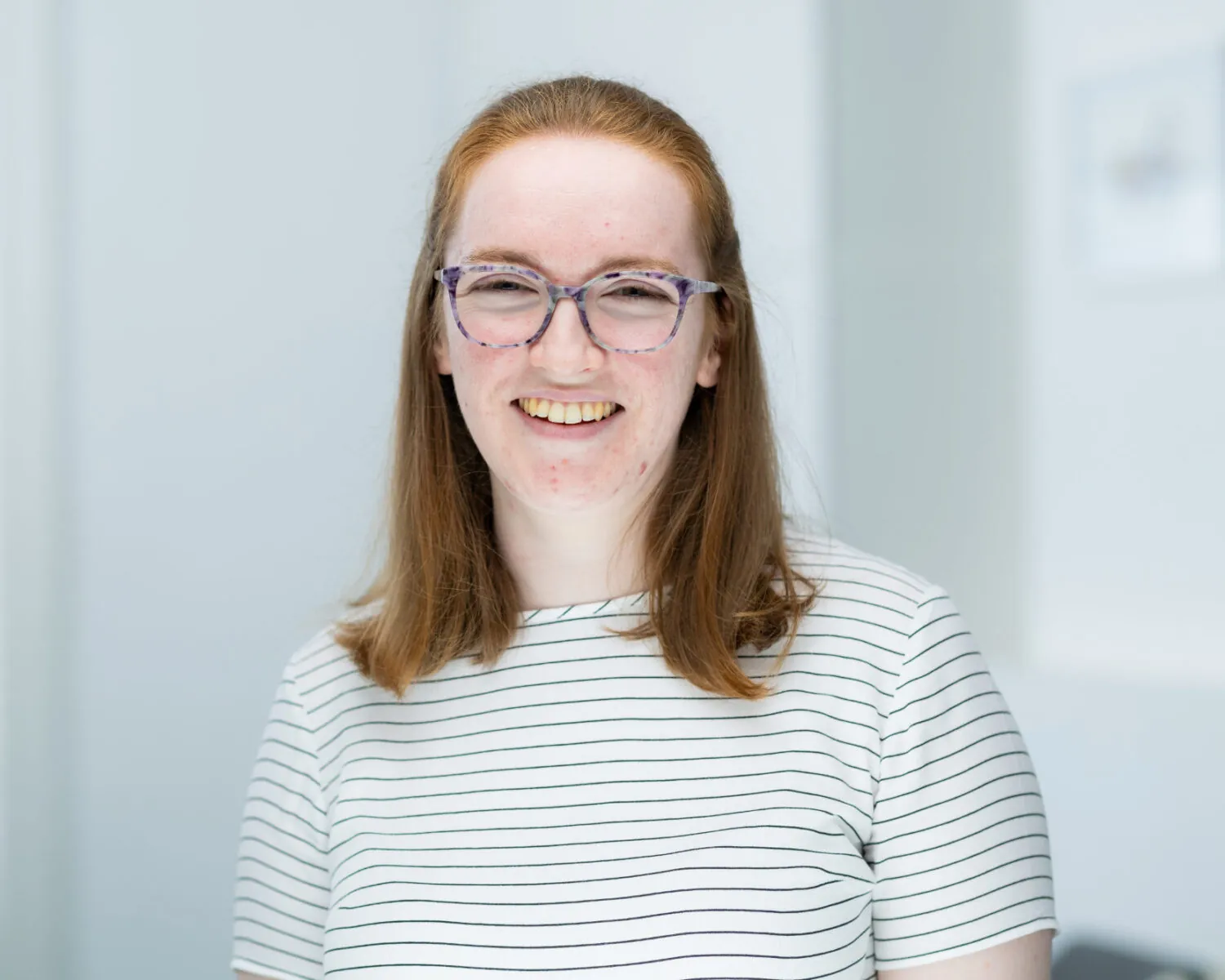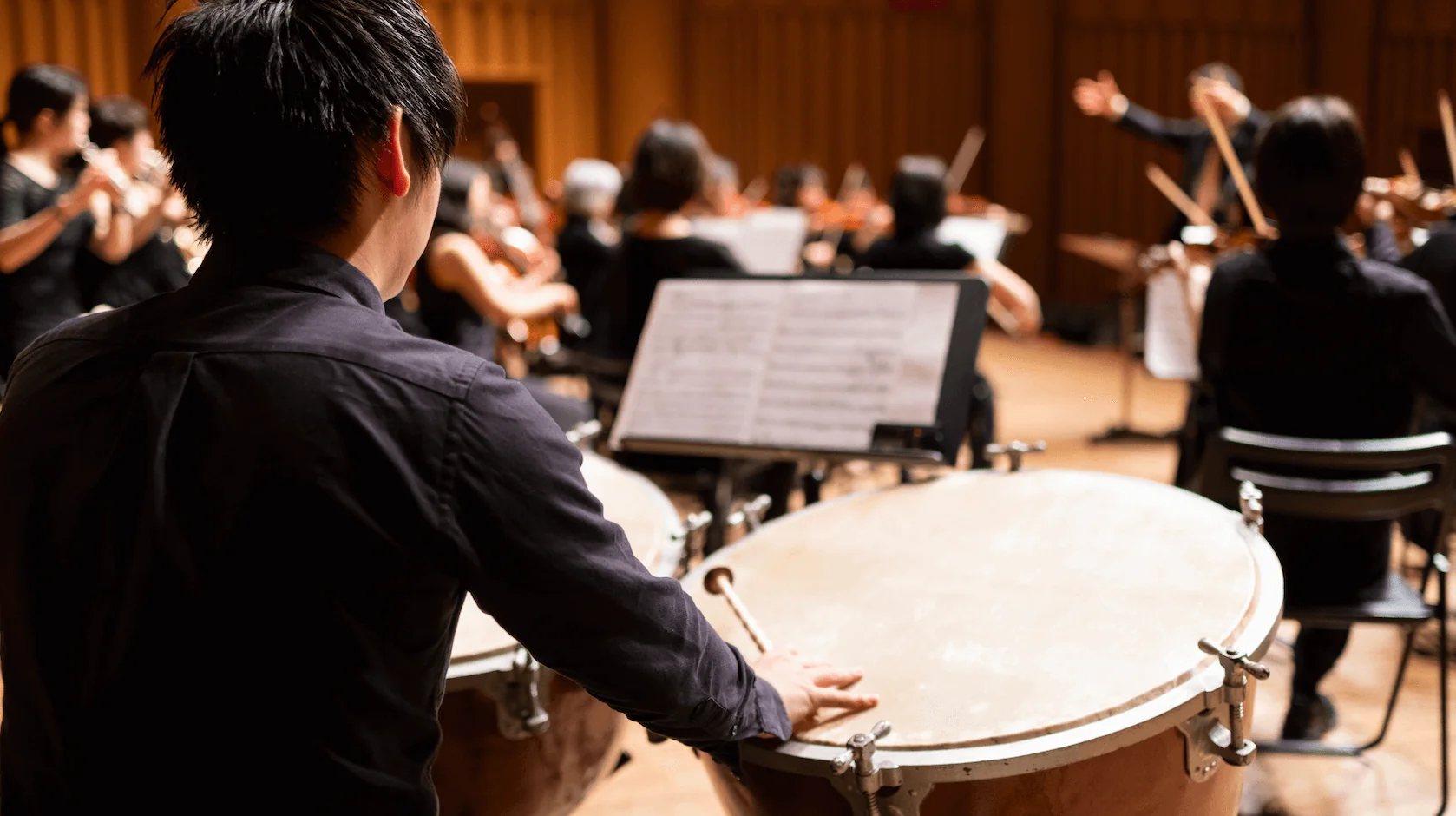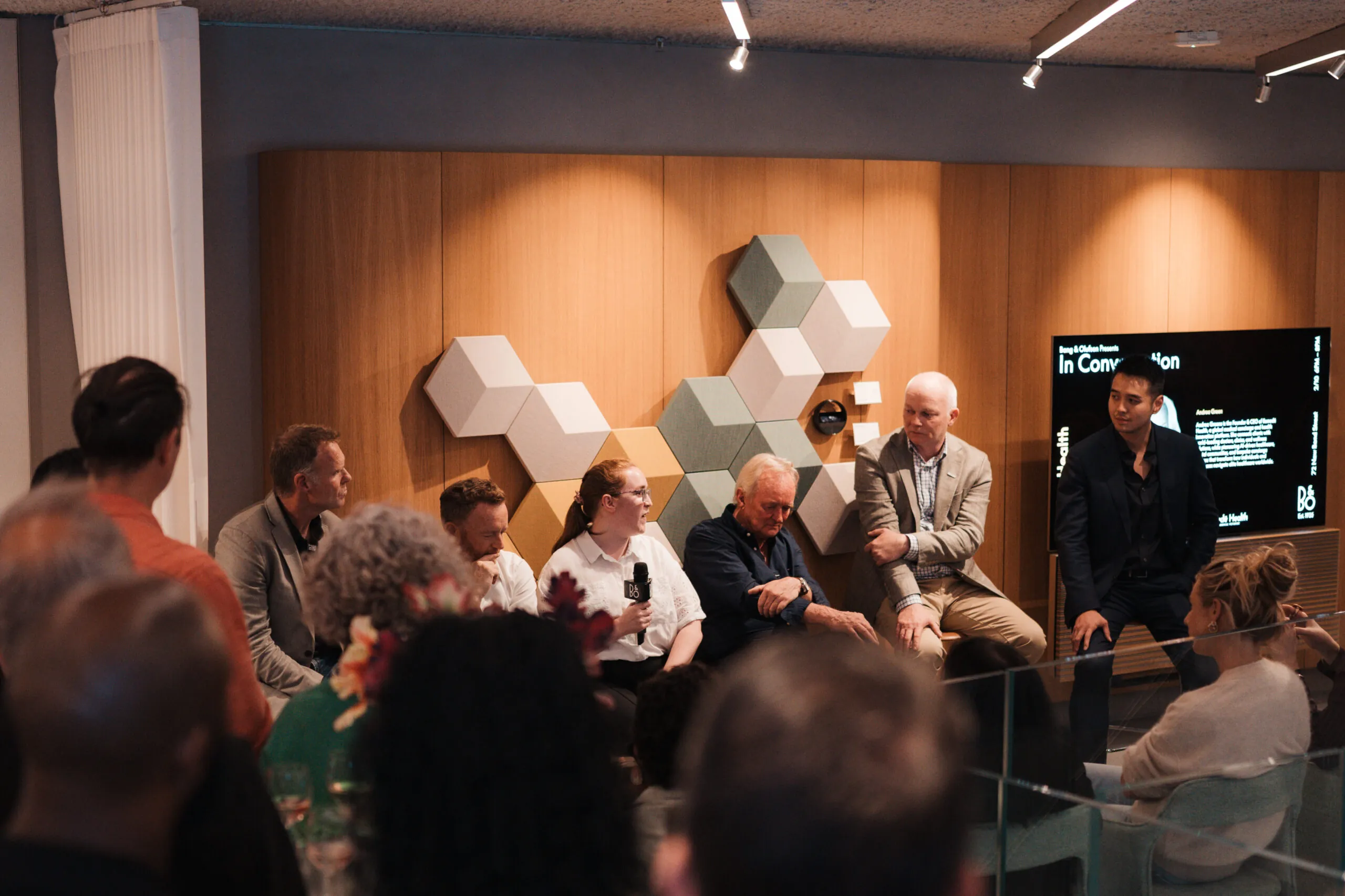The 4th UK Hearing Conservation Association (UKHCA) Annual Conference took place in Manchester on 6th November, bringing together professionals across research, industry, and clinical practice to explore how we can move beyond awareness and take real action to manage the impact of noise on hearing health.
Representing Harley Street Hearing & Musicians’ Hearing Services, Clinical Lead Audiologist Fiona Butterworth was proud to contribute to this year’s event, presenting insights on the Musicians’ Hearing Health Scheme. Since joining in 2018, she has supported countless musicians through custom hearing protection and music-optimised hearing aids
The Musicians’ Hearing Health Scheme
Run in partnership with Help Musicians and The Musicians’ Union, the scheme gives all professional musicians in the UK affordable access to specialist hearing assessments and hearing protection. It aims to start musicians on their hearing health journey and connect them with clinics for ongoing care throughout their careers.
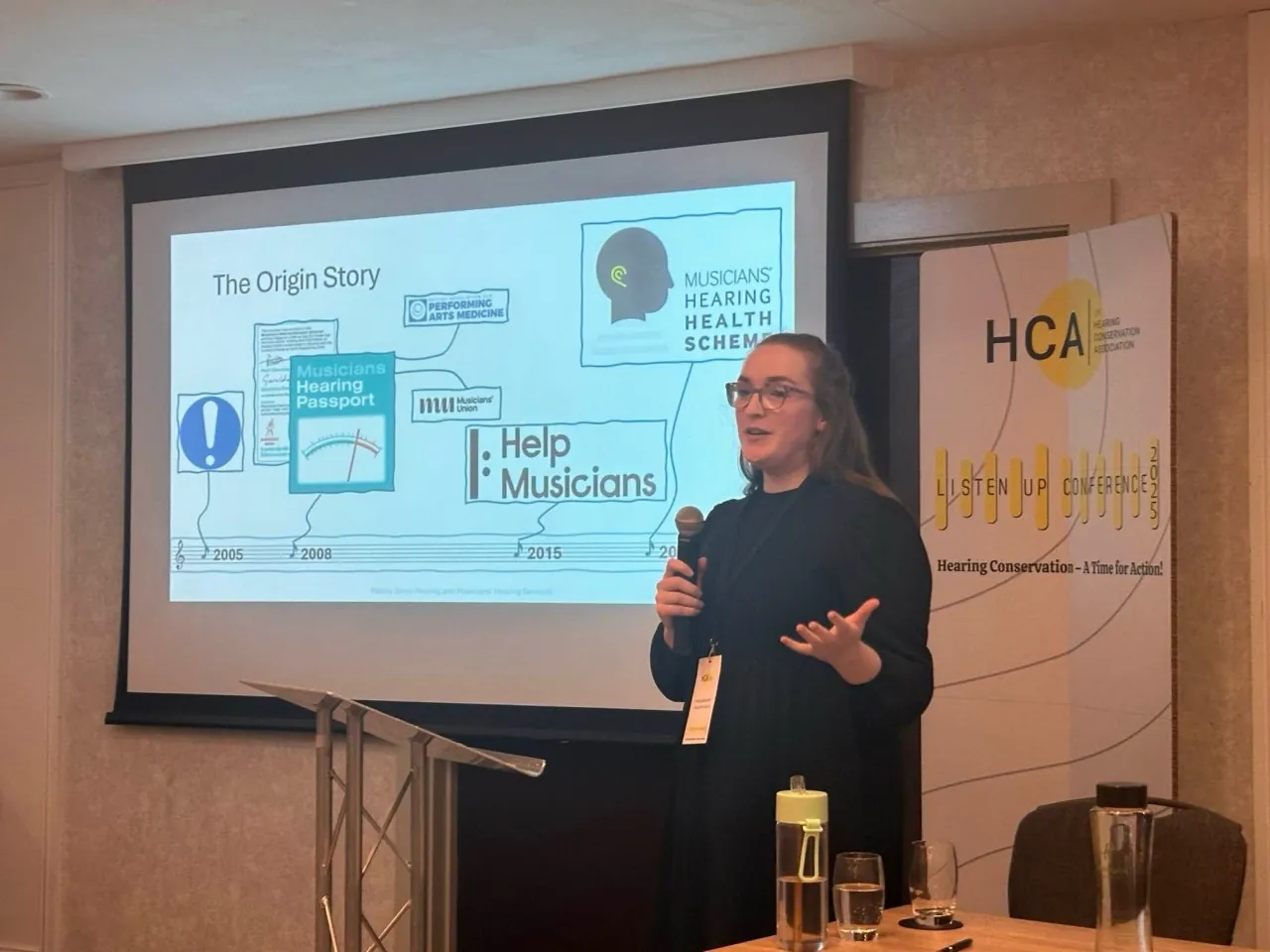
Reflecting on her presentation, Fiona said, “It’s always fantastic to showcase the Musicians’ Hearing Health Scheme and the impact it’s had on the music community. Since launching in 2017, we’ve now seen over 21,600 musicians through the scheme – each of whom has taken a proactive step toward protecting their hearing and sustaining their career.”
Fiona explored trends from recent years, revealing that instrumentalists (30%) and DJs (20%) make up half of all participants. Nearly half (49%) are based in London, reflecting the city’s large musician population and the convenience of combining appointments with gigs or tours. Dance is the most common genre (24%), followed by classical/choral/church music (14%). Guitarists represent the largest instrument group (just under 20%), while brass, woodwind and string players collectively make up 15%, and percussionists 10%.
“It’s fascinating to see how awareness and access to protection are changing behaviours,” Fiona added. “Musicians increasingly recognise that hearing loss and tinnitus don’t have to be inevitable consequences of their work. With the right protection, we can make a real difference.”
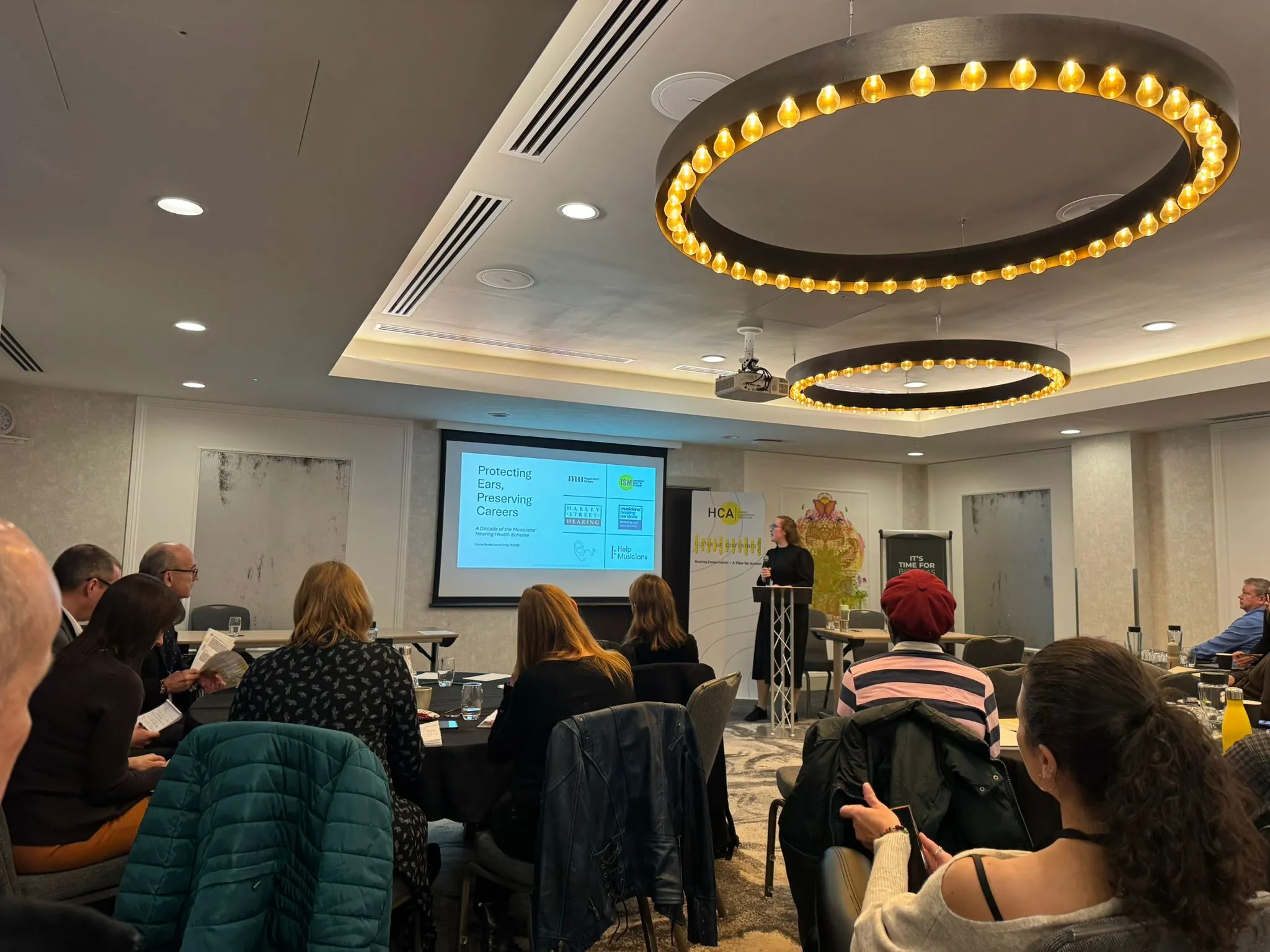
Key Discussions
The conference opened with Clare Forshaw, who emphasised the need to move beyond awareness toward measurable action.
Other discussions included:
- Chris Steel (HSE): Provided insights into workplace noise exposure and mitigation, highlighting areas where further improvements are still needed.
- Professor Martie van Tongeren: Discussed research on occupational diseases and the critical role of robust surveillance data.
- Gill Cussons: Stressed that hearing protection is essential but should complement — not replace — efforts to reduce noise at the source, something we can still consider in music and performance settings.
- Mary Cameron: Shared best practices for fit-testing methods in occupational health, ensuring protection is both effective and comfortable.
- David Greenberg: Explored hearing protection features of the AirPods Pro 3, including considerations for real-world use.
- Dalia Tsimpida: Presented behavioural insights, demonstrating that peer influence is a major factor in consistent hearing protection use
- Fabrice Bardy: Addressed tinnitus support, highlighting its economic impact and the importance of early intervention.
- Jessica Andrew: Shared new research on sports-related head injuries and auditory processing changes, showing how brain responses to sound can be affected.
- Professor Kevin Munro: Clarified current evidence around hearing loss and dementia, debunking common myths.
Looking Ahead
As the UKHCA looks to the future, the focus is turning insight into action through technology, collaboration, and practical noise management strategies.
“Everyone at the conference shares the same goal,” Fiona reflected. “Whether it’s in industrial settings, music, or healthcare, we’re all working towards smarter noise management — not just reacting to problems, but preventing them in the first place.”
She added, “We hope the long-term impact of the Musicians’ Hearing Health Scheme on the UK music industry includes more musicians consistently using protection and preventing noise-related hearing decline. Ultimately, we’d love to do ourselves out of a job by reducing the number needing help for hearing problems.”
A huge thank you to the UKHCA and BOHS (British Occupational Hygiene Society) for hosting such an informative event.
Book a hearing consultation
If you’re interested in hearing protection or simply want to learn more about looking after your hearing, contact Harley Street Hearing and Musicians’ Hearing Services to arrange an appointment and get expert advice tailored to your needs, so you can keep performing at your best for years to come.
